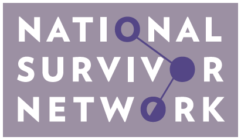Sometimes, we're just not a great match.
If you’re on this page, it’s likely that you applied for membership in the National Survivor Network and that (at this time) our Membership and Community Working Group decided that our community is not the right container for the work you need or want to be doing right now. That doesn’t make you or your work less valuable to the world, your wellbeing, or our movement — it just means we might not be the best match.
Sometimes, members might end up on this page because their membership was paused due to a significant concern regarding safety or confidentiality and their membership is paused pending some conversations towards repair, or because (after attempts at conversations) their membership is terminated.
Or it may be that you’re here because after exploring membership, you’ve decided it’s just not for you.
In all these cases, your worth as a person and the validity of your work are not determined by whether or not you’re a member.
It could just be that we’re not a great fit at the moment. Or, it might be that there are things you could learn or practice that might strengthen your advocacy or bring us into better alignment.
Some of the most common reasons the NSN is not a good container for the work our applicants are doing are listed below, with potential resources that may support you in the next steps of your journey. We hope that if you’re in a place in the future where you feel more aligned with our work, you may consider re-applying. We recognize that all of us (our network included) are in process, and welcome growth and meaningful change.
Concerns around partial criminalization of the sex trades.
Concerns around labor trafficking.
Concerns around your current level of support and readiness for community accountability.
Concerns around partial criminalization of the sex trades.
Often, applicants may be early in their journey of developing nonjudgment around consenting adults’ sexual choices, or may still be unpacking some common anti-trafficking framings of sex work by adults. Because survivors who support sex worker safety are so powerfully discriminated against, attacked, or invalidated by anti-trafficking advocates, they do not have many safe-enough spaces to do their anti-exploitation advocacy. Our commitment to ensuring their safety in our space means we are careful only to admit new members who are already on the journey to unlearning some of the biased and harmful language and frameworks that are commonly weaponized to silence these survivors. We’d love to continue to be a resource for you as you continue to explore this! Please consider checking out our YouTube playlist on Safety in the Sex Trades (particularly our Radical Nonjudgment panel discussion).
Concerns around labor trafficking.
Occasionally survivors of trafficking in the sex trades will apply, and are not yet in a place where they fully appreciate the importance of addressing labor trafficking. While sex trafficking survivors are largely marginalized in our general society, they do hold privilege in the anti-trafficking survivor movement, and we expect them to use that privilege for building collective power that includes all survivors. Consider listening to this podcast on The Human Cost of Labor Trafficking or reading this article called The Pied Piper of North Carolina to start learning more.
Concerns around your current level of support and readiness for community accountability.
This work is hard! Being in movement spaces is tough. Interacting with other trauma survivors while managing your own trauma responses is hard. Working in a nonprofit sector that does not always prioritize impacted communities’ needs can leave you feeling continually gaslit. While we work hard to mitigate these impacts, the reality is not everyone is able to do this work without extensive support. Because of the nature of our work (we are a professional/organizing membership community for folks doing or ready to do this work), we do not provide clinical services or support for members. Because we are committed to preventing harm in our spaces, we want to make sure that folks who come into our community are able to navigate boundaries without causing harm to themselves or others, and are willing to learn to receive information about when they’ve caused harm. For support, please check out our Get Help page, or our resources for navigating workplace conflict, boundaries and workplace trauma, and community accountability.
Concerns around implicit racial or gender bias.
To take the next steps in your racial justice journey, consider exploring resources from Race Forward or Showing Up for Racial Justice.
To take the next steps in your journey to understand how misogyny and gendered discrimination impact LGBTQ individuals, check out The Trevor Project, FORGE, or this helpful training series on pronouns and why they matter.
To better understand how patriarchy and misogyny impact all people, including men, check out our training video: Gender-Based Violence.
Other survivor learning communities
The NSN believes in a spirit of collaboration and mutuality at our core, and recognize that there are plenty of other places where you might strengthen your advocacy and organizing. Some other networks and learning programs specific to human trafficking survivors include:
Elevate Academy (does not align with the NSN’s values around commercial sex)
